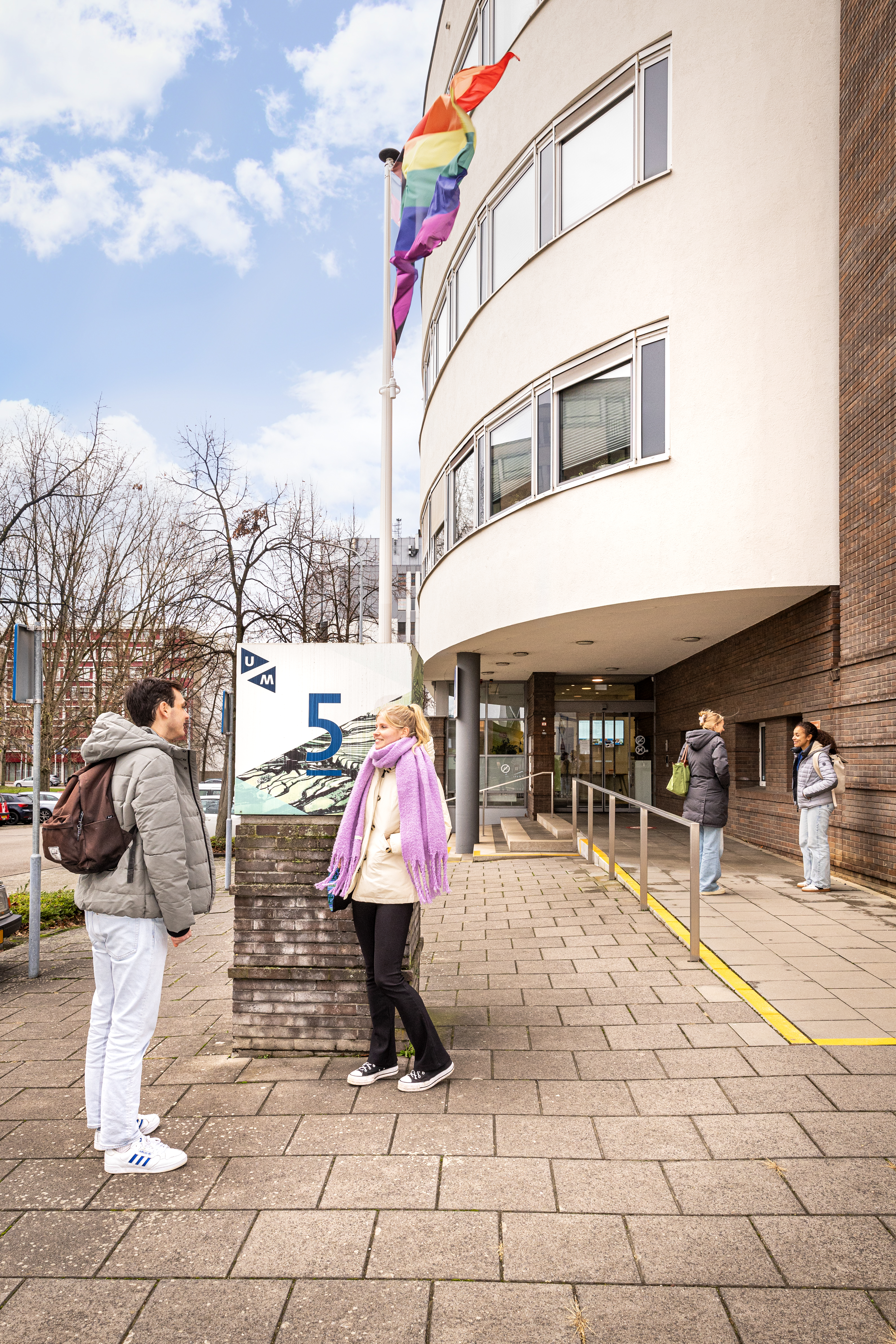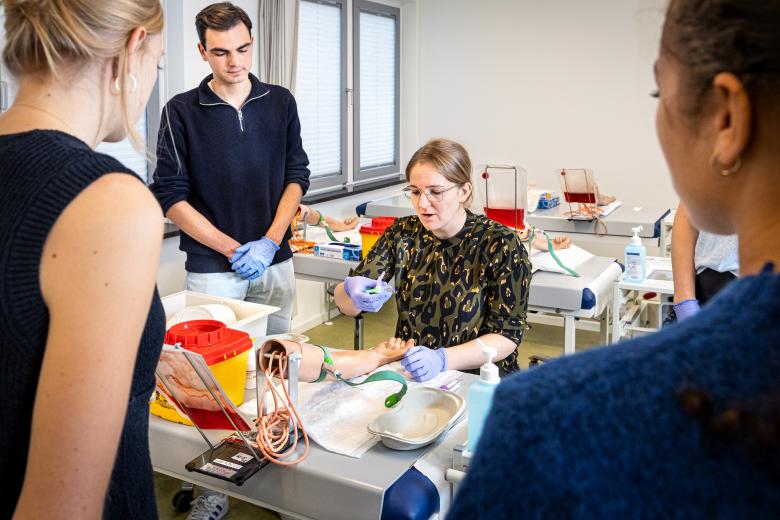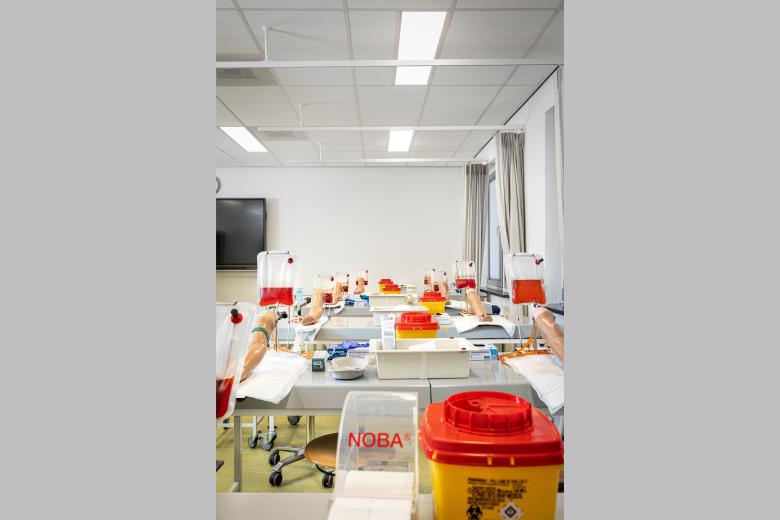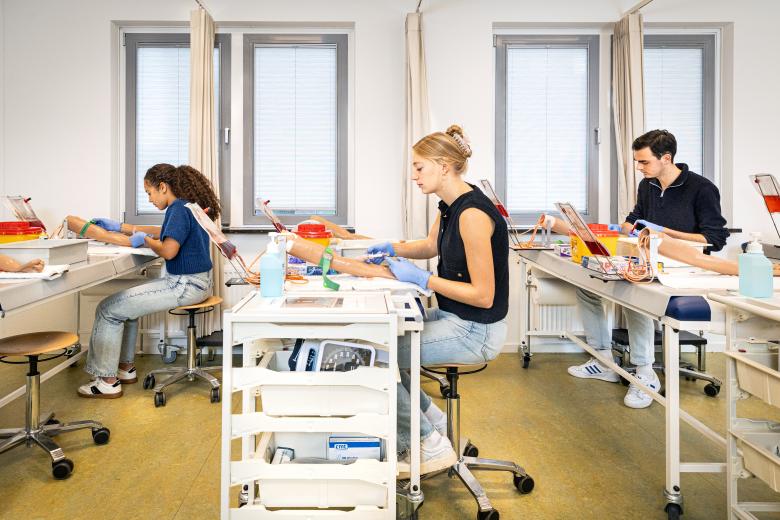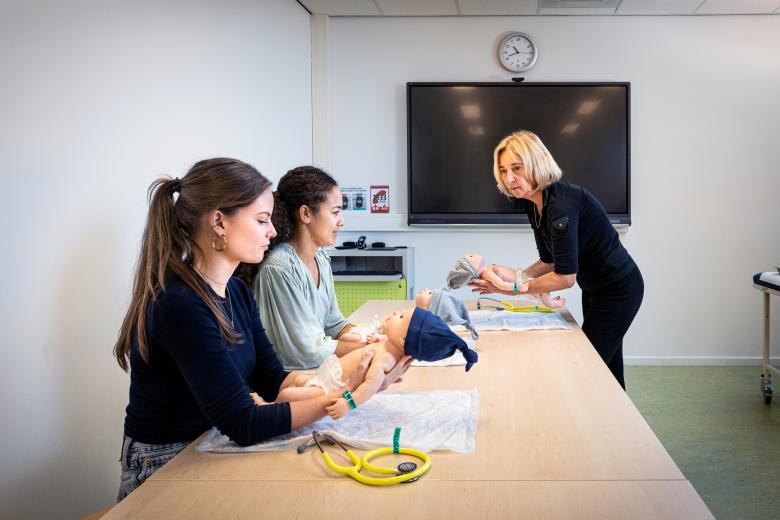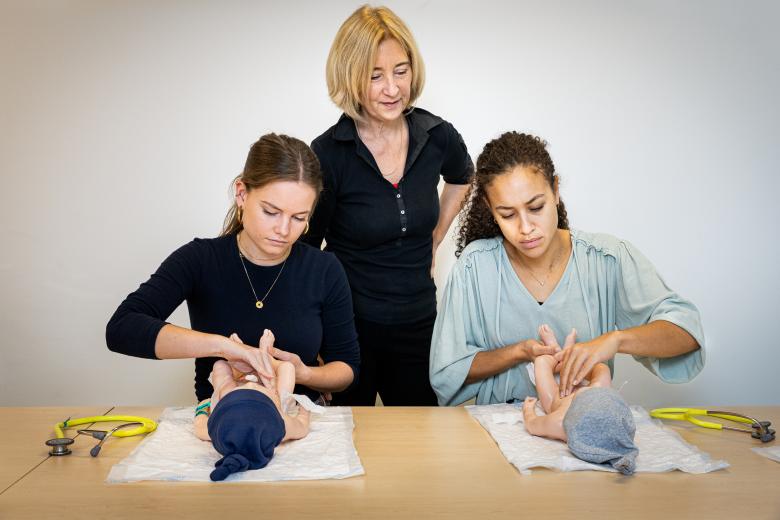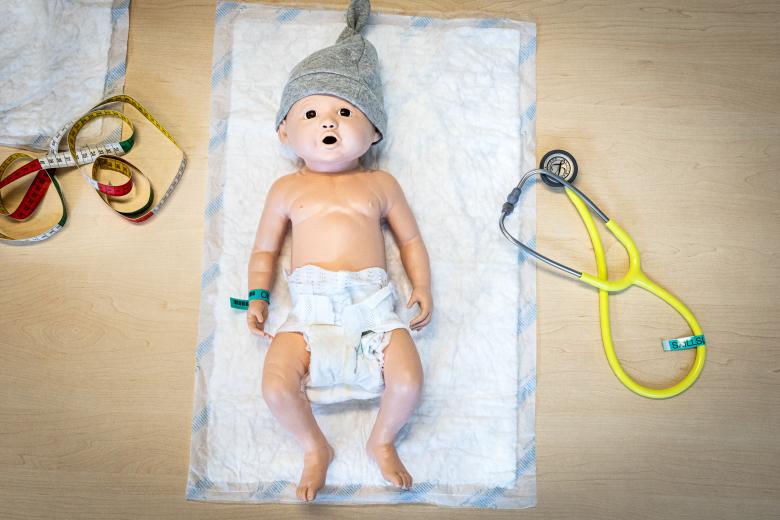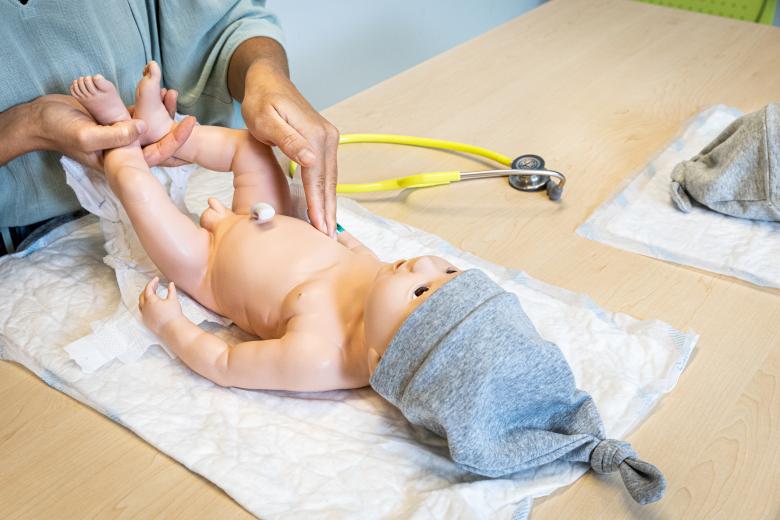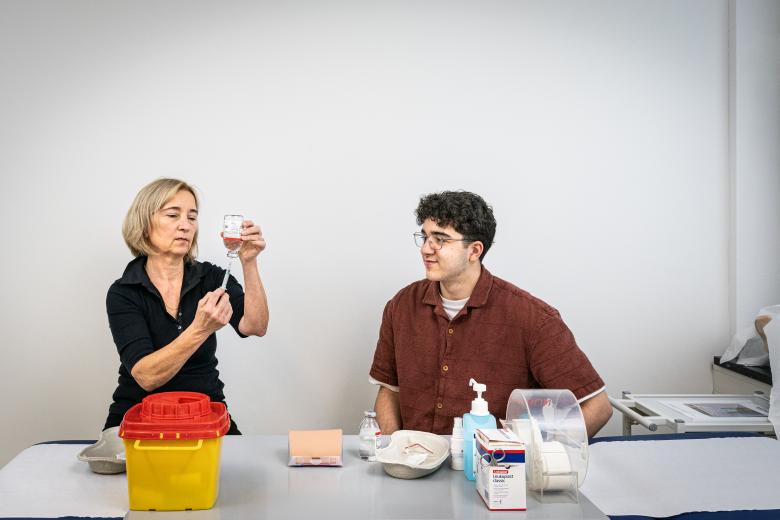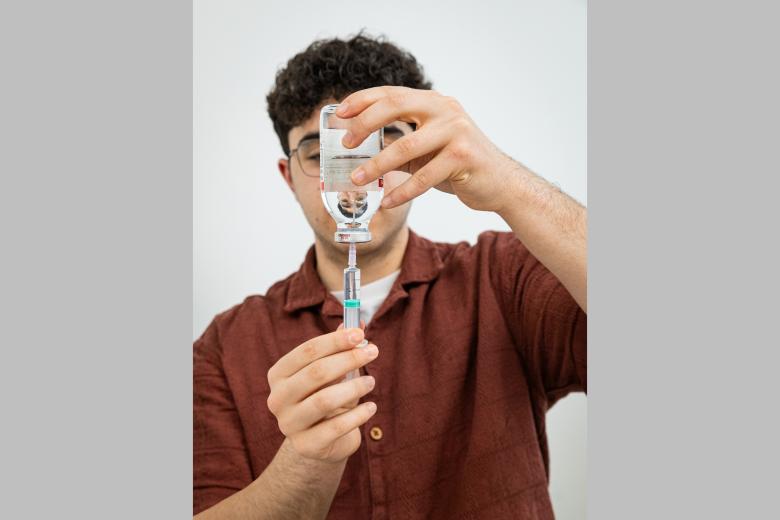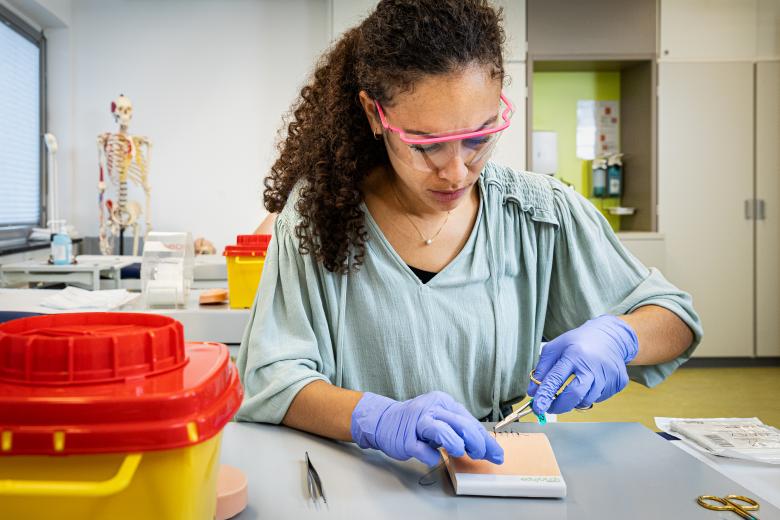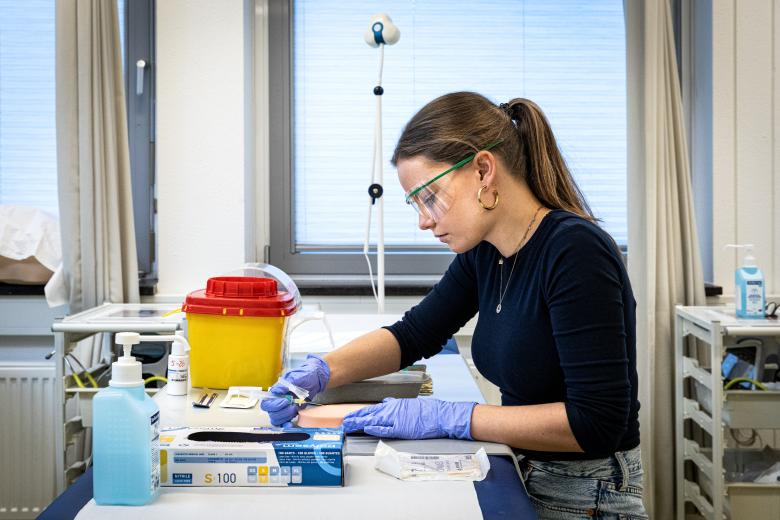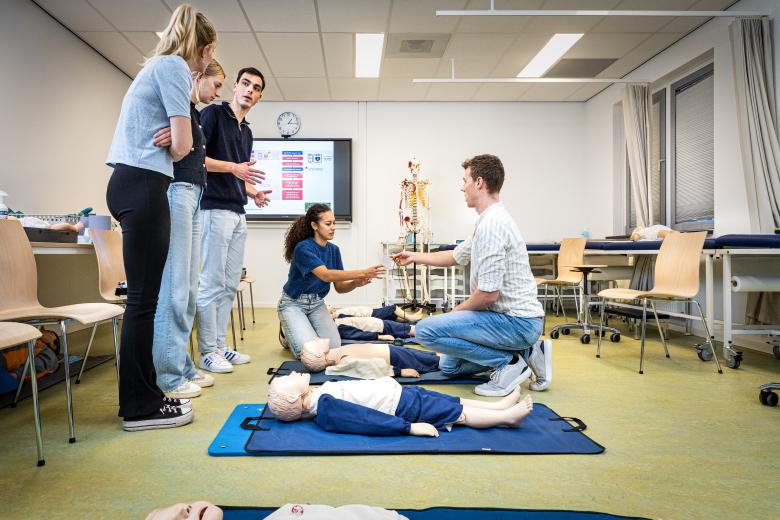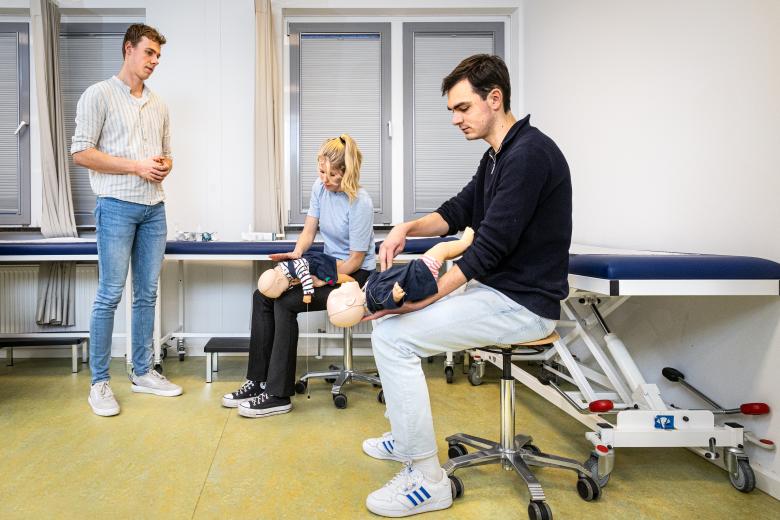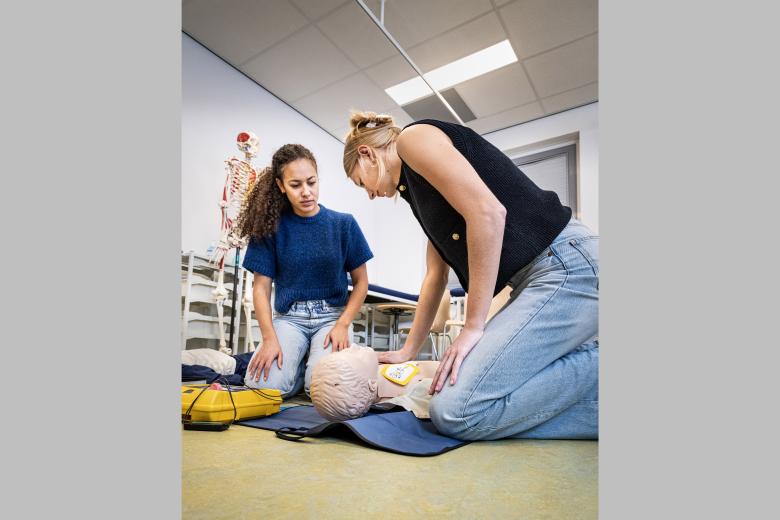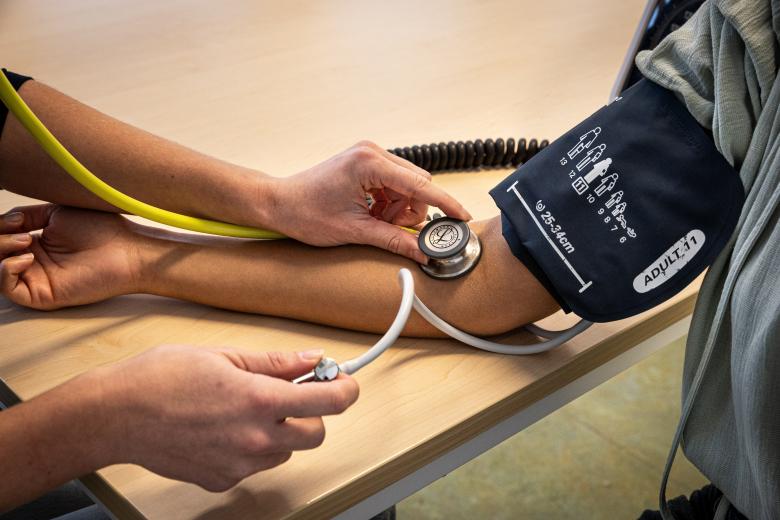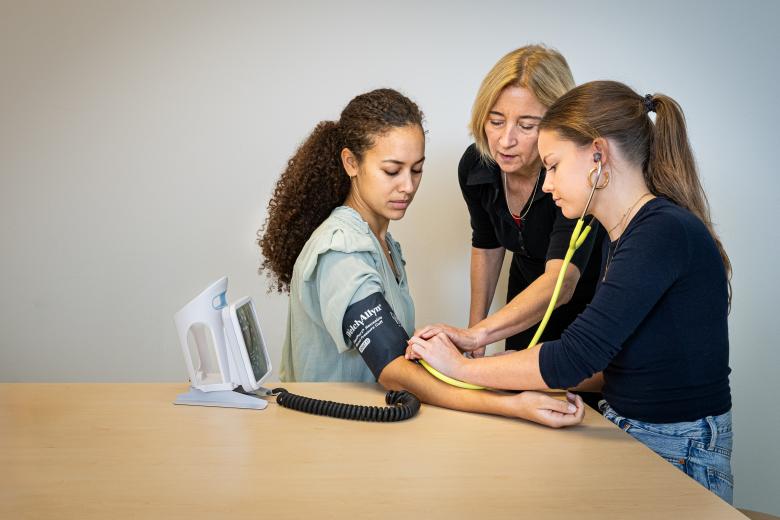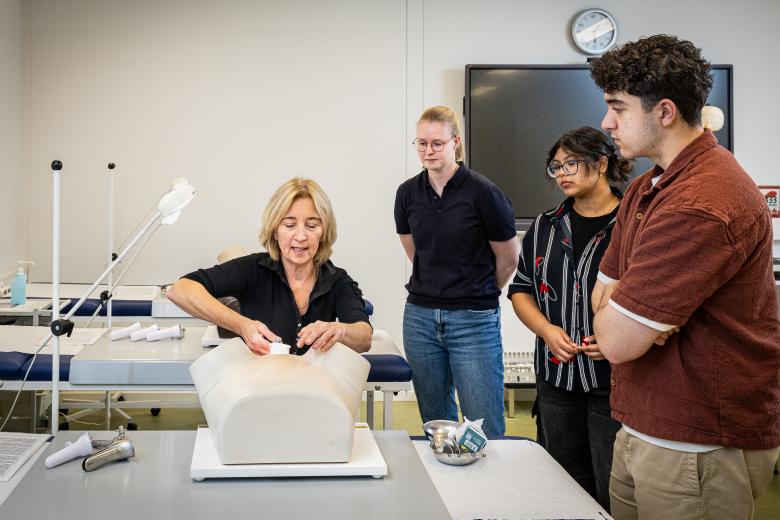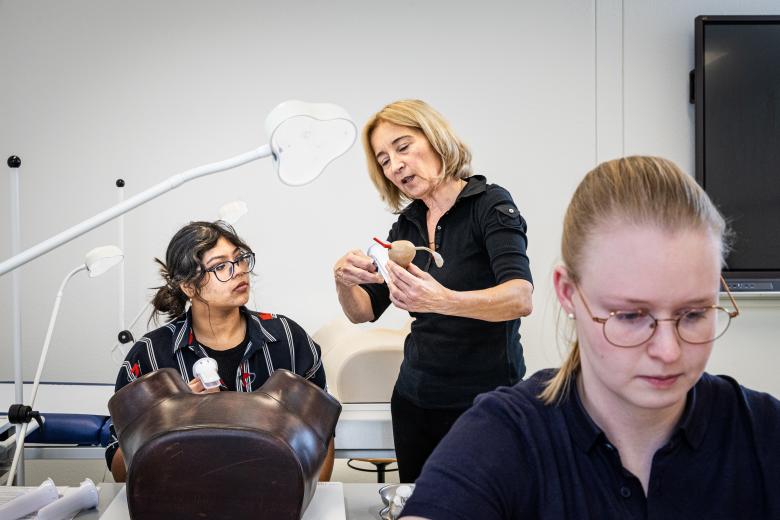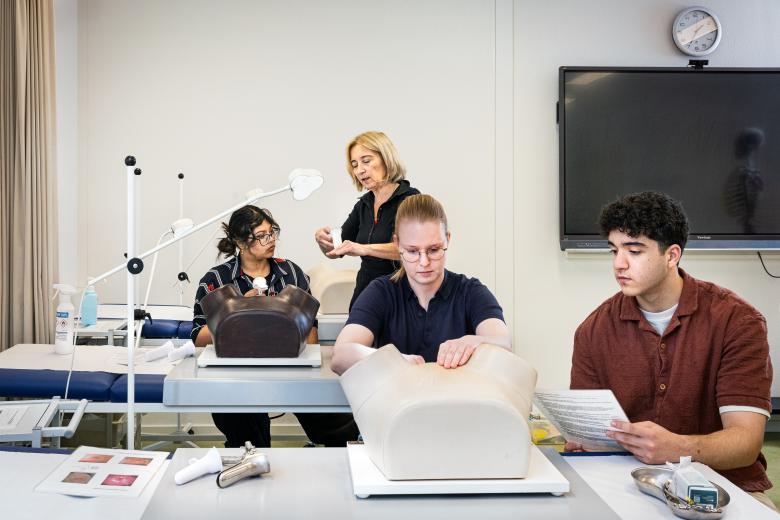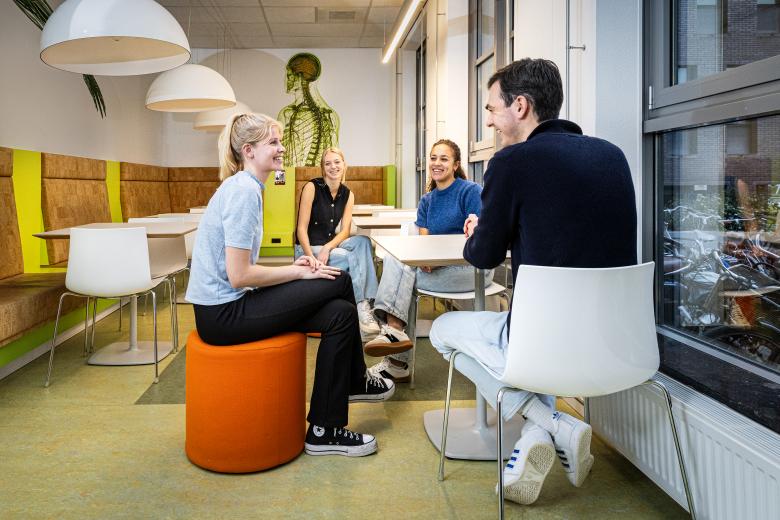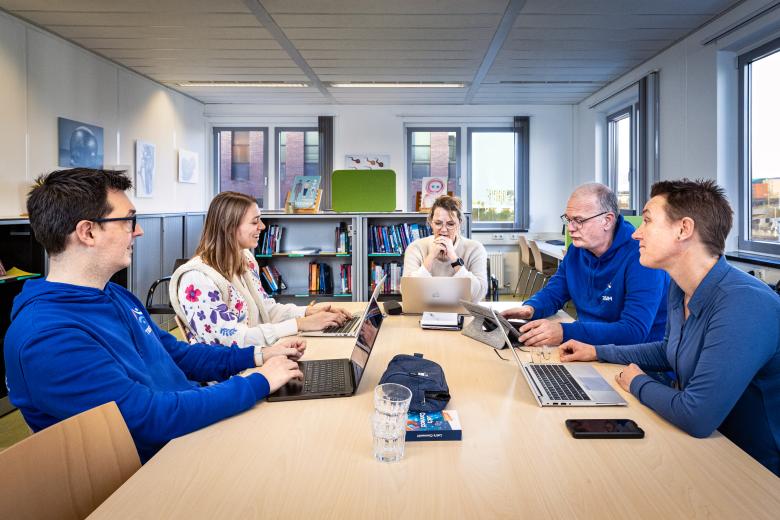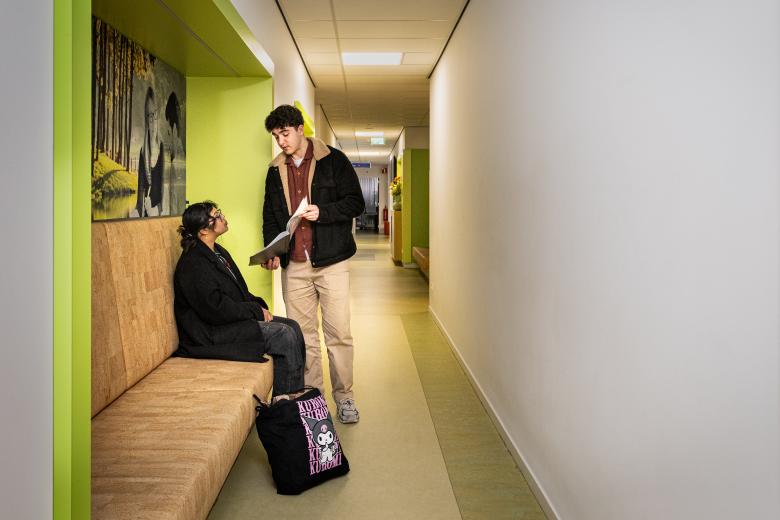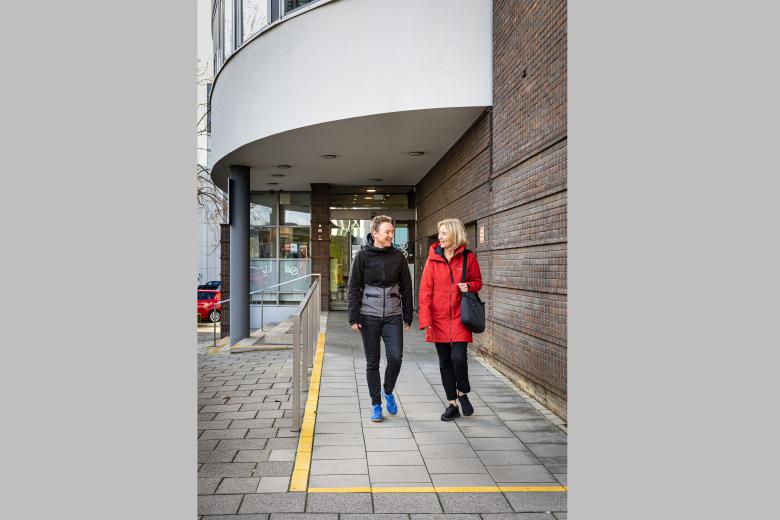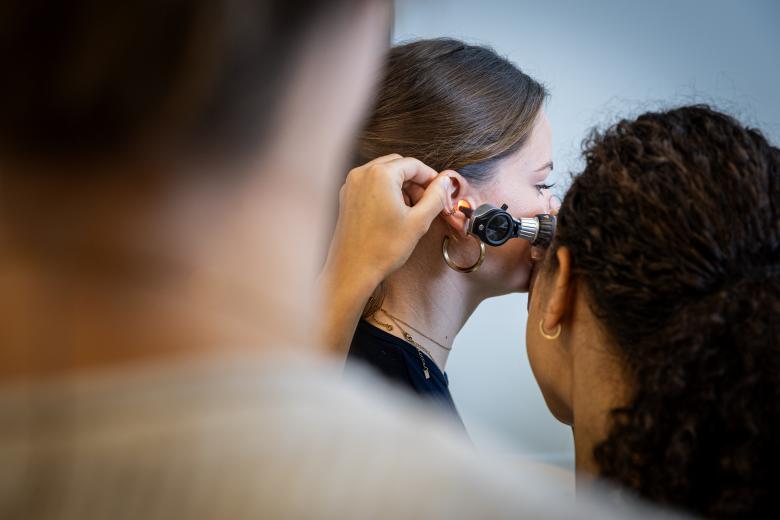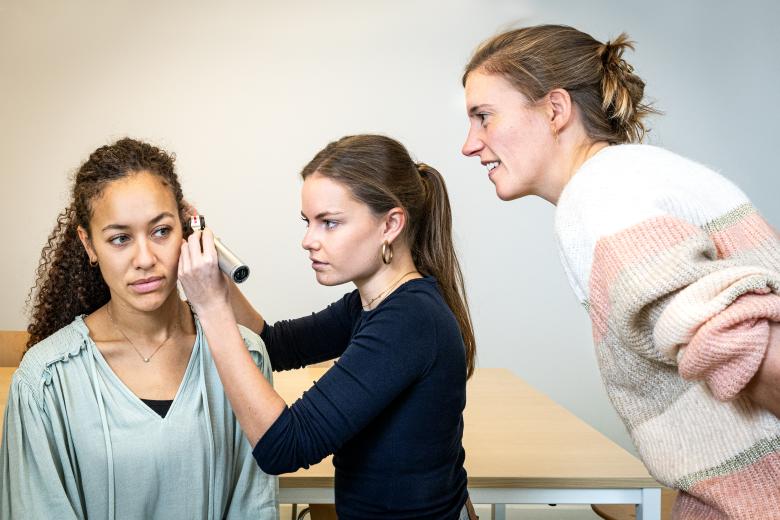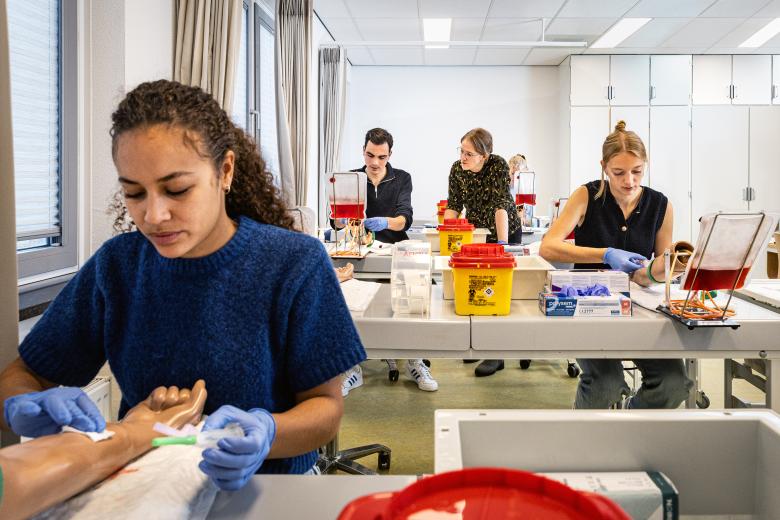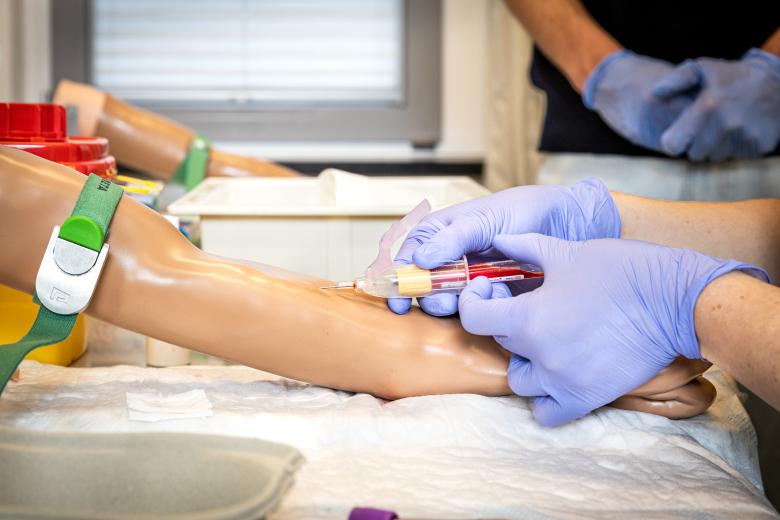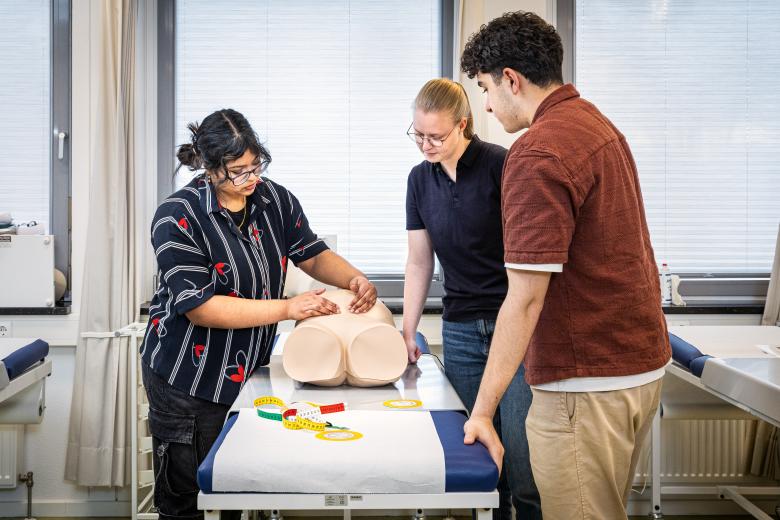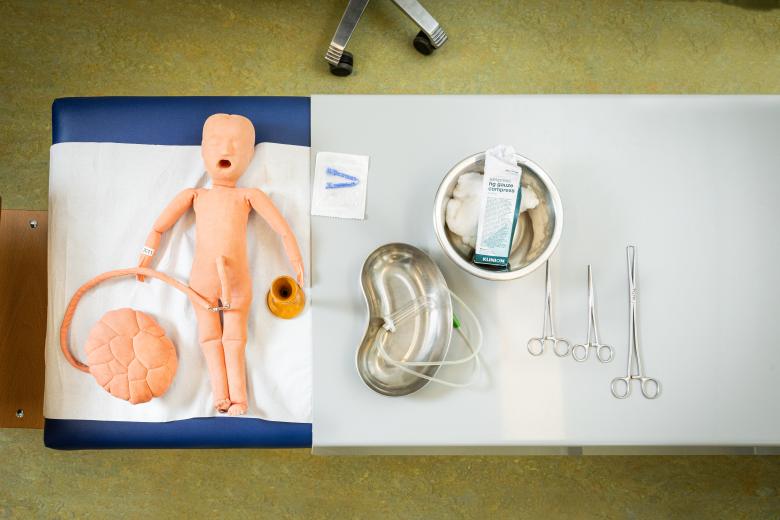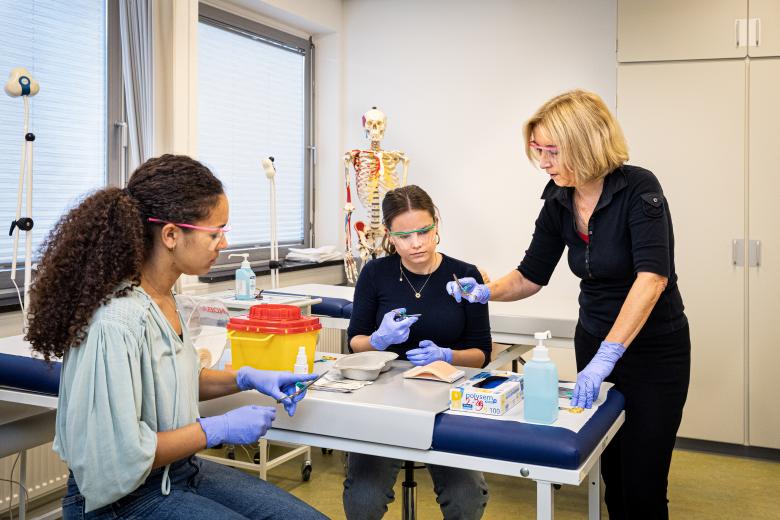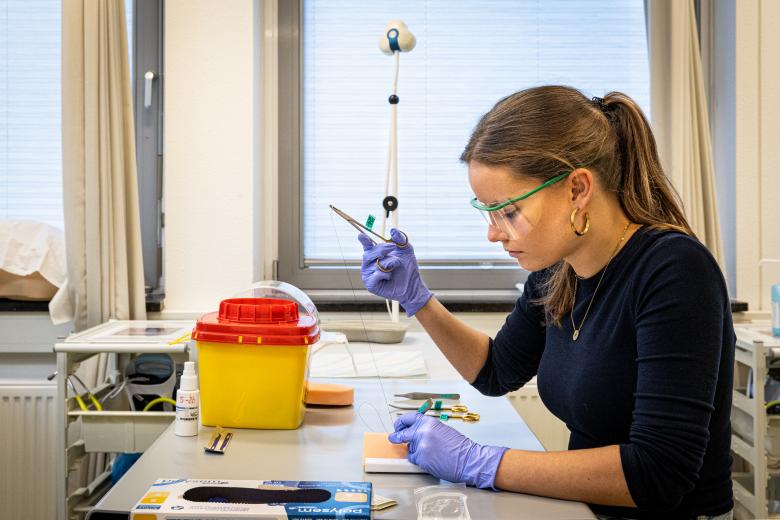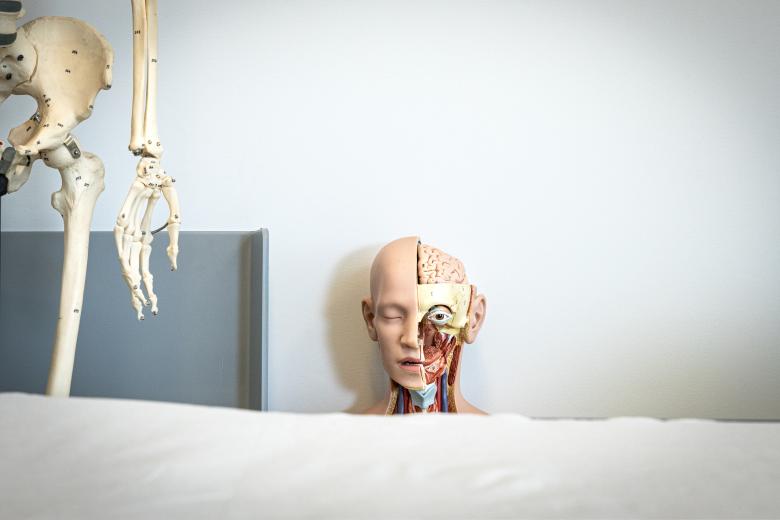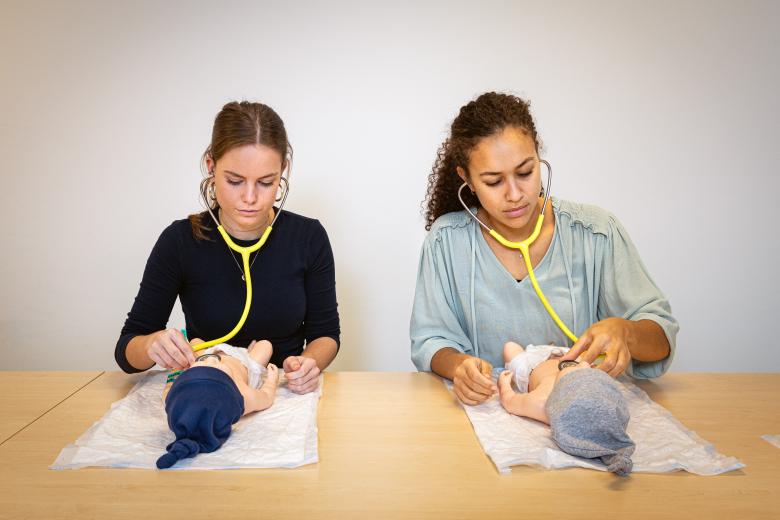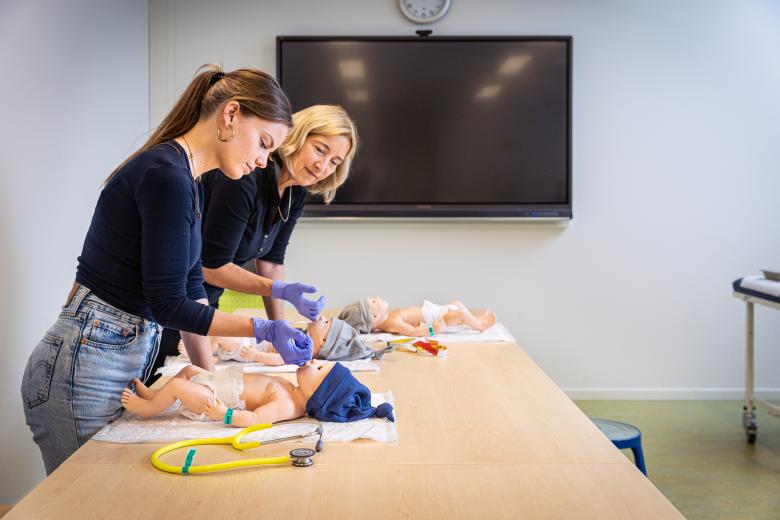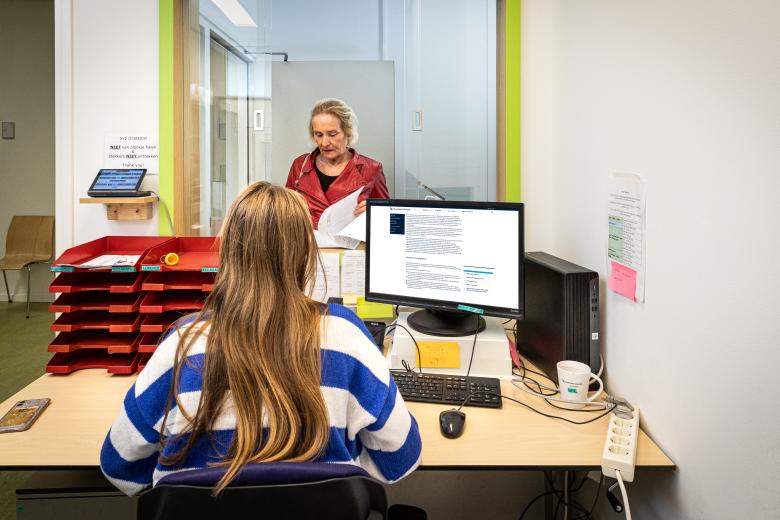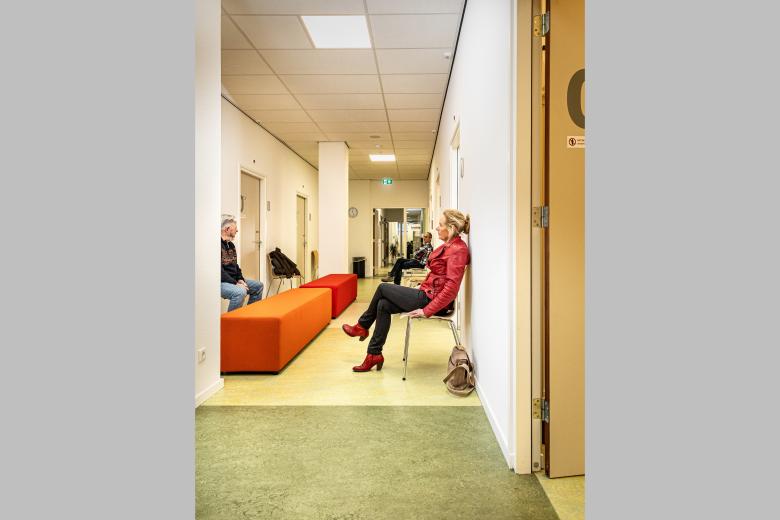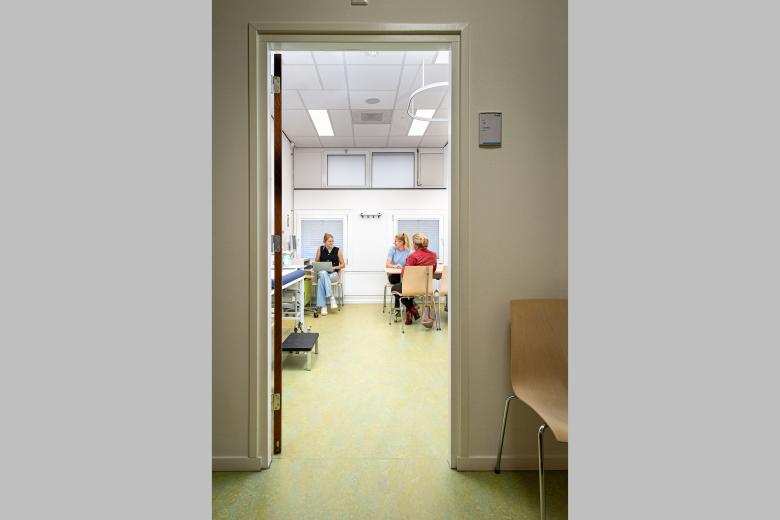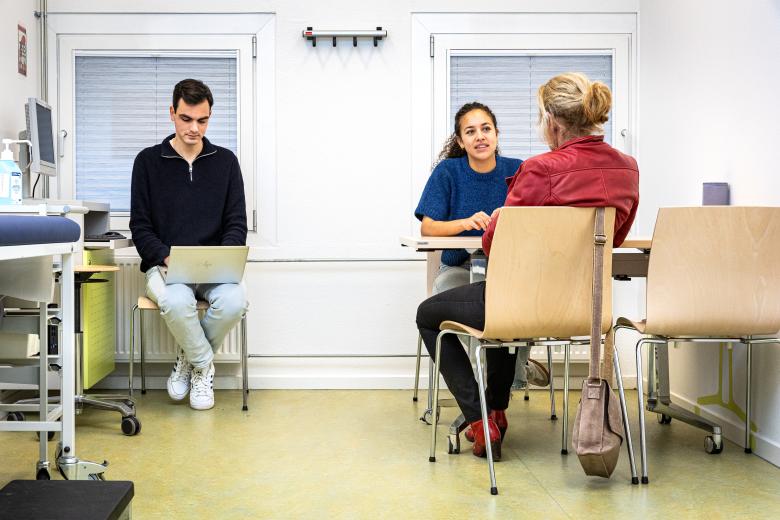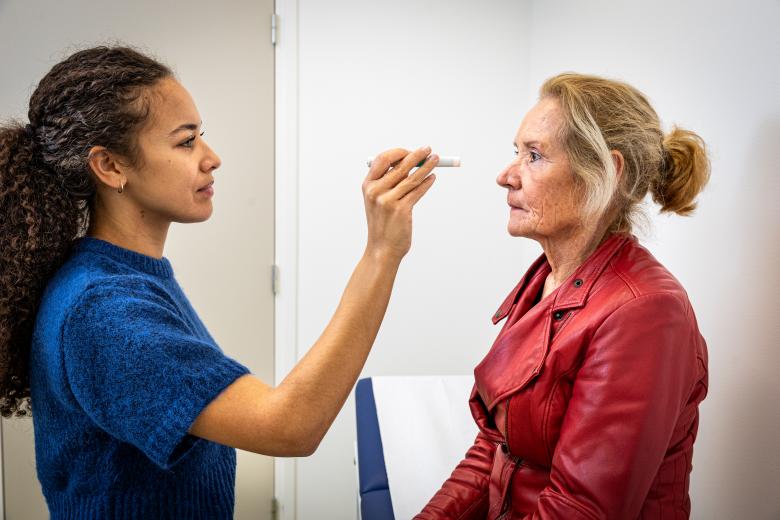The Skillslab
The Skillslab provides skills training for Medicine students at Maastricht University. It provides students with a unique and modern simulation environment to develop clinical and consultation skills essential for the doctors of today and the future.
With a focus on innovative and scientifically grounded education, the Skillslab aims to inspire and support students in their journey to becoming medical professionals. Its skills training is built around five core pillars:
- Communication skills
- Consultation skills
- Clinical skills
- Clinical reasoning
- Documentation and handover (to healthcare professionals)
(Text continues below the photo)
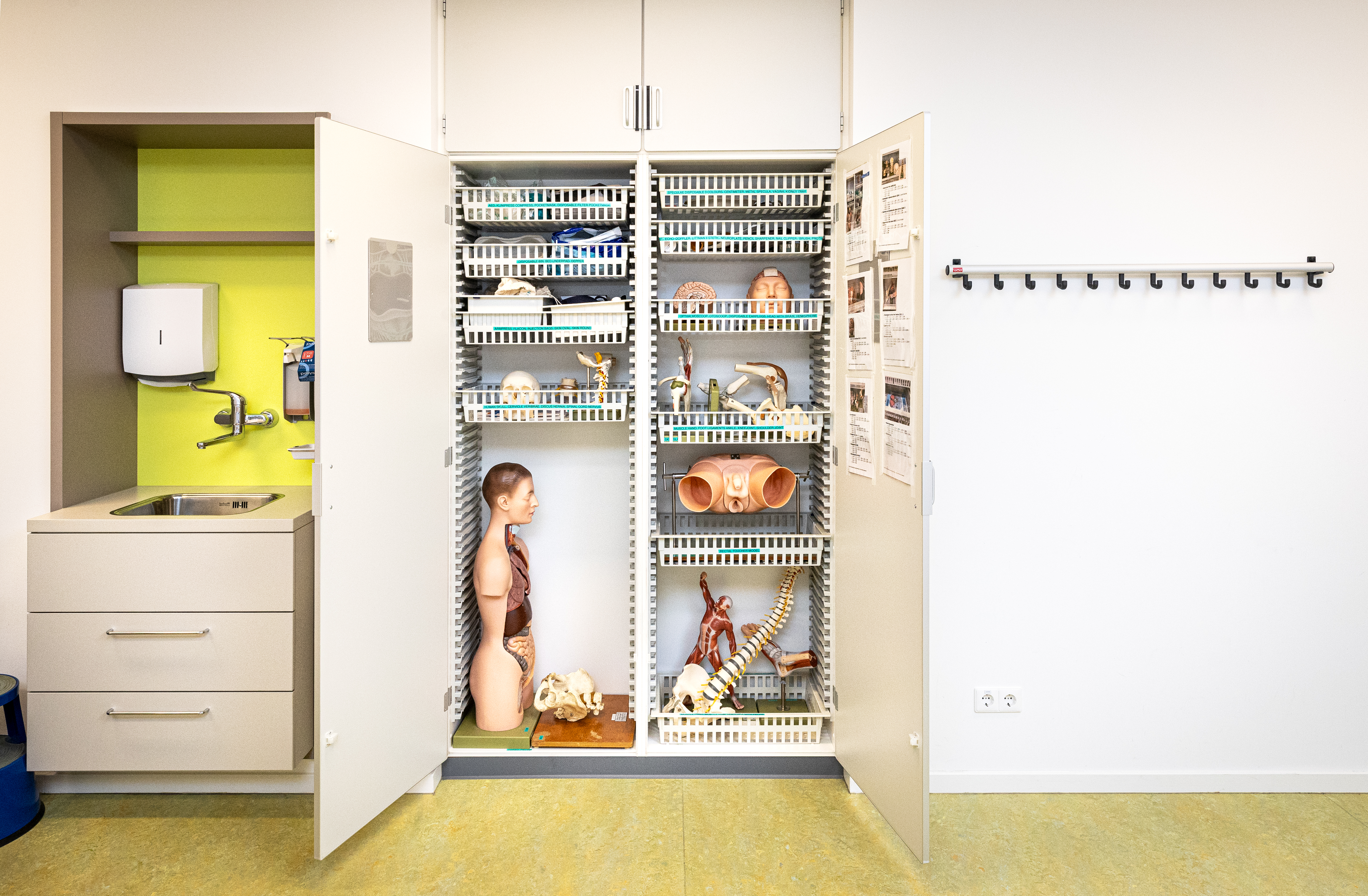
-
The Skillslab's educational approach goes beyond developing practical skills. It places strong emphasis on self-regulated and co-regulated learning, reflective practices, intrinsic motivation, and cultivating a mindset geared towards lifelong learning. Students not only practice technical procedures but also focus on conducting consultations, effective communication, teamwork, and their personal and professional development. Diversity and inclusivity are key principles, encouraging students to be curious about the person behind the patient.
Click on the icon to watch all photos
(Text continues below the photo)
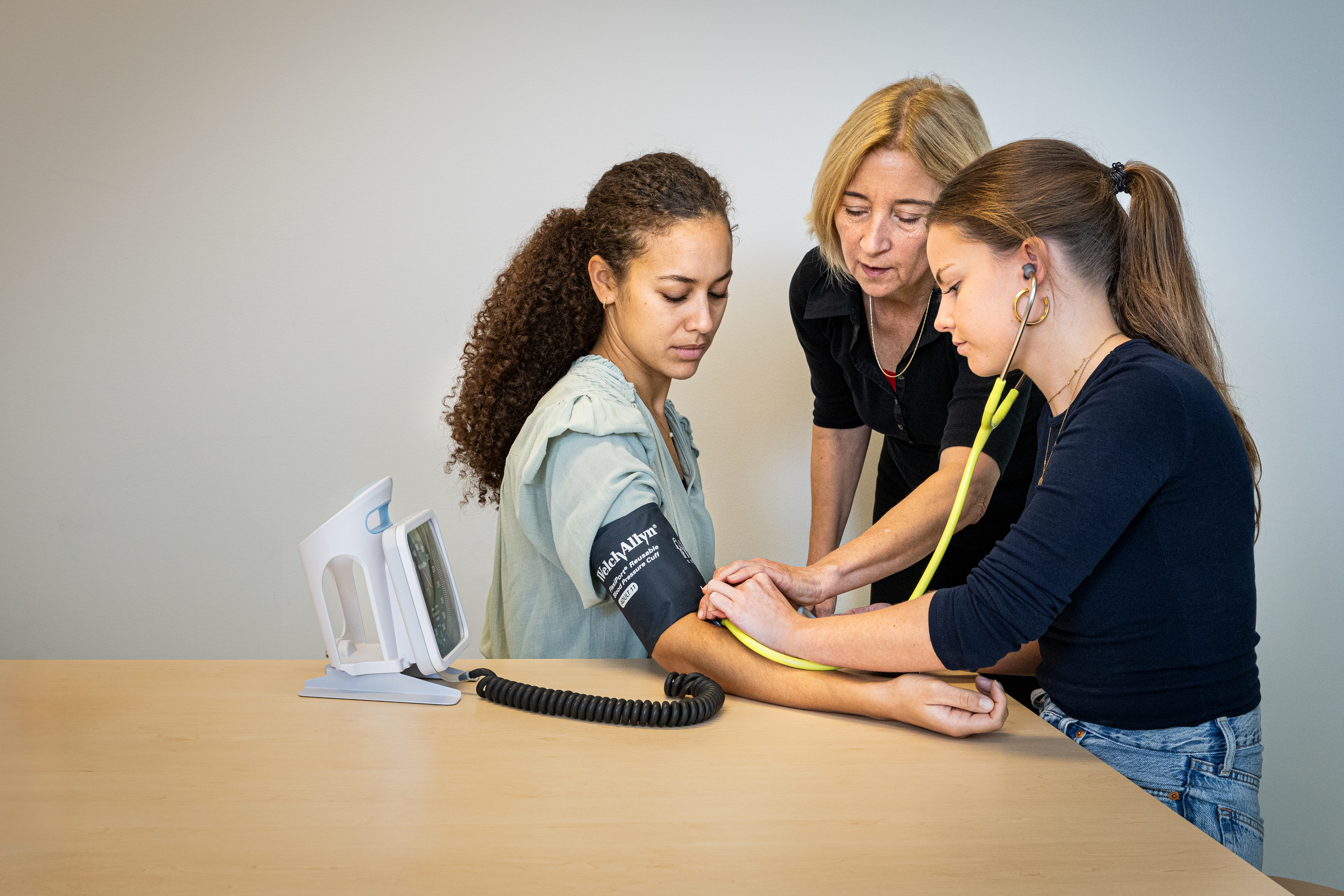
-
The Skillslab values a safe working environment where both teachers and students can grow and contribute using their unique talents. The learning environment in the Skillslab is small-scale, enabling personalised guidance from skillscoaches and instructors. The focus is on giving students the opportunity to learn and practice based on their individual goals, as part of the integrated curriculum of the Medicine programme and skills training.
Click on the icon to watch all photos
(Text continues below the photo)

-
Expectations for students are clear, with defined learning outcomes that are made readily available. The Skillslab has implemented programmatic assessment, where students learn from their assessment programme. The organisation of the educational approach and the assessment programme is intensive and demanding.
Click on the icon to watch all photos
(Text continues below the photo)
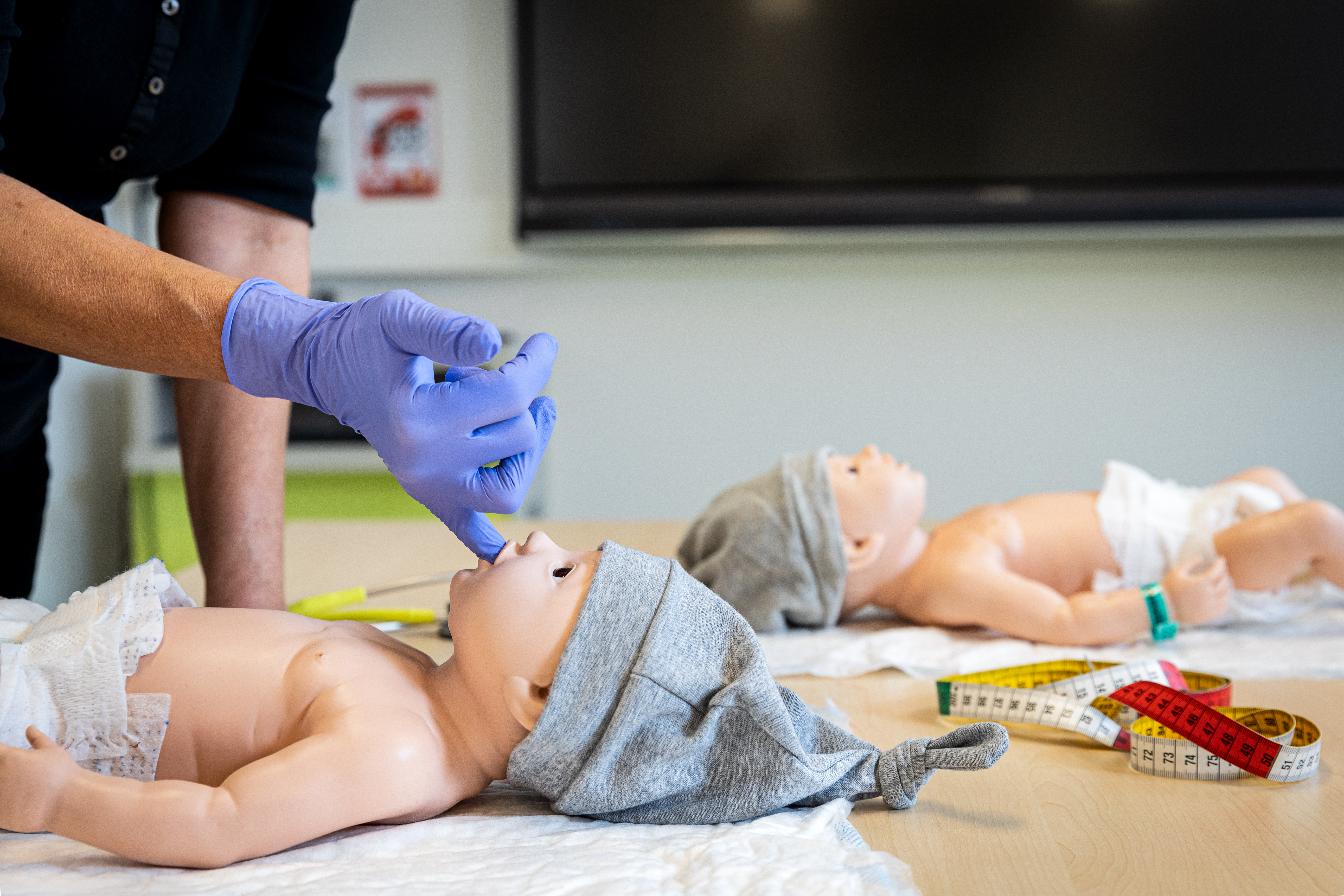
-
Practicing on peers is an essential component of skills training, with a shared responsibility to shape it properly. Specific models are used for procedures like injecting, and trained individuals assist with breast exams, gynecological exams, and male genital exams. This allows students to practice under the guidance of a skills instructor (doctor). Patients are also involved in the educational process, helping students better understand the impact of illness on a patient’s life.
Click on the icon to watch all photos
(Text continues below the photo)
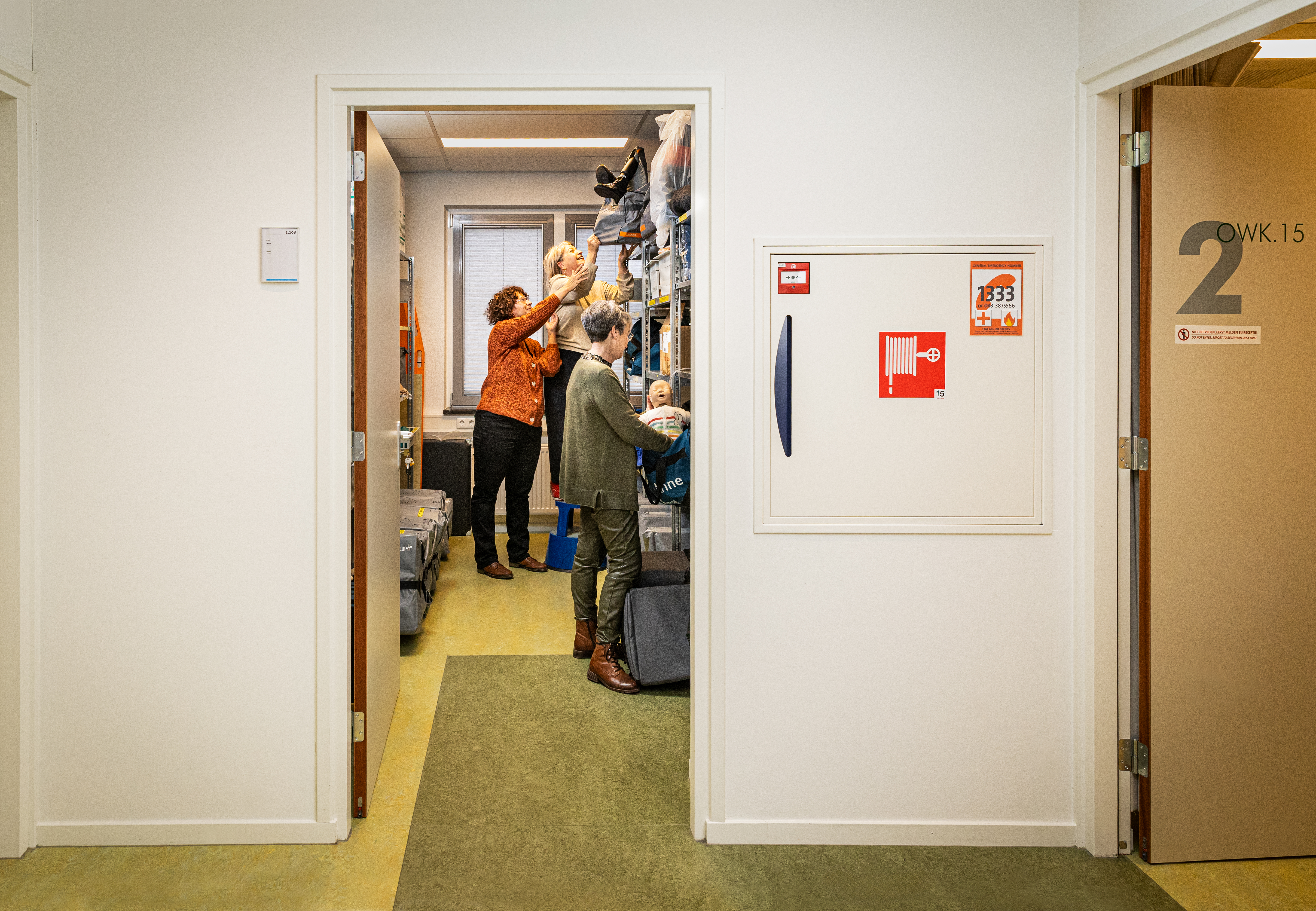
-
To make the educational programme as realistic as possible, the Skillslab works with trained simulation patients who convincingly portray the role of a patient. This makes consultations more practice-oriented. In doing so, the Skillslab supports the transfer to the workplace as a co-assistant and lays a strong foundation for developing the medical and interpersonal skills indispensable in healthcare.
Click on the icon to watch all photos
All photos: Paul van der Veer
Text: Sanne Handels
